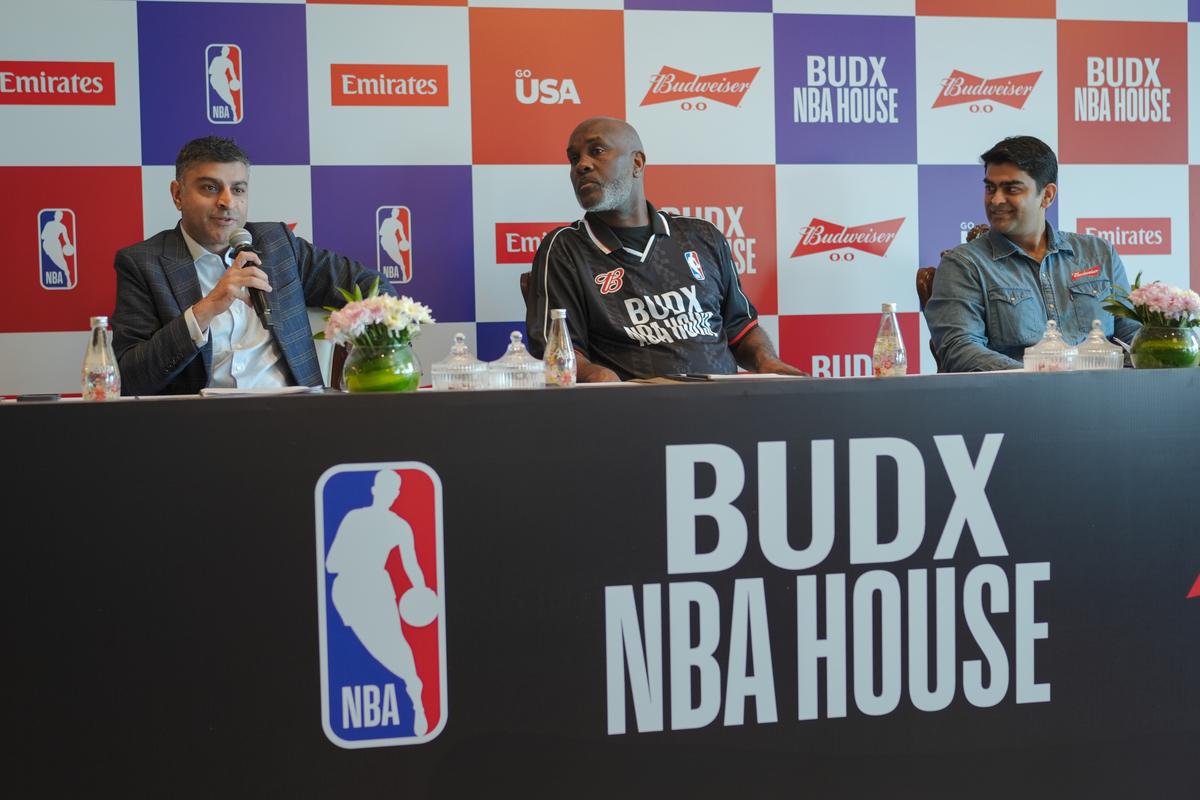A nine-time NBA All-Star and All-Defensive First Team member, Gary Payton is inarguably a legend of the game. In his long and illustrious career, he redefined the guard position with his defence, and went on to lead the Seattle SuperSonics to the NBA Finals in 1996. A decade later, he was a member of the title-winning Miami Heat team, along with Shaquille O’Neal and Dwayne Wade.
While he was considered one of the best defensive opponents of Michael Jordan during his time, Payton ‘doesn’t care’ about those comparisons. He is happy to have built his own legacy.
“I guarded him every time. He wasn’t just a focal point for me. Everybody in the NBA was a focal point for me. I would like to be remembered as the first two-way basketball player to play with both ends of the floor,” Payton said on Thursday.
In the city for the BudX NBA House, Payton stressed on the importance of playing from both ends. “I cared about stopping the opponent, their best player. Because if I stopped them, that meant I could stop their team. Because they couldn’t function without him. So that’s what it’s all about with me. My legacy started because of defence. People say that. That’s great. I love it. But really, my legacy started off with me being a complete basketball player. Both ends of the floor, complete,” he said.
“In my era, the 90s, we were only averaging about 85 points a game. That’s what it was all about. And when you can do that, you have a chance to win games. Because if you’re struggling on offense but you’re holding them at 68 points, you’re always in that basketball game. And that’s my legacy. I don’t want anything else,” he added.
On being part of the NBA Hall of Fame, the seasoned campaigner said, “My mentality was to go out and stop whoever I wanted to stop. And nowadays, a lot of kids, some 10 year olds, in the United States come up to me, and I tell them that ‘you weren’t even born when I was playing basketball’.
“I’m happy that I was in that legacy. And now we’re evolving to just fast pace, three point shooting, a lot of athletic basketball players. And it’s great for our game. It’s just a different era, a different change,” he said, adding that the 3×3 format is perfectly suited for the Olympics.

Payton highlighted the similarity of 3×3 to pickup basketball that is popular across the world.
| Photo Credit:
Special Arrangement
Payton highlighted the similarity of 3×3 to pickup basketball that is popular across the world.
| Photo Credit:
Special Arrangement
3×3 basketball, an edge-of-the-seat entertainment, made its Olympic debut at Tokyo 2020. “I think it’s better on 3×3 because you don’t have that fourth man and fifth man coming to help. In 3×3, you have to be accountable for your player and it’s more energy and you have to be in more shape. Because you’re there around or playing all the time and digging in. I’ve watched this for a million years because I coached the big 3×3 (players). And I see these players getting in great shape and doing it,” he said.
Payton highlighted the similarity of 3×3 to pickup basketball that is popular across the world. “When I grew up, what was I doing? I was playing pickup basketball. Same thing as 3×3. It’s pickup basketball to keep yourself in shape, to keep you knowing how to play the game more smartly.
“Now, you don’t have that help. Now you’ve got to be accountable for your man. You can’t take chances. I think it makes you better in basketball because you don’t take many chances. You have to be accountable for your team or your player, the person you’re guarding,” he said, adding: “It’s a great thing. Because if you make one mistake, it’s going to be a basket. And then you’re going to be eliminated real quick with the rules because it goes quick. So, 3×3 makes you become a smarter basketball player because you don’t have help from your other two players. You only got three. And you have to be accountable…”

